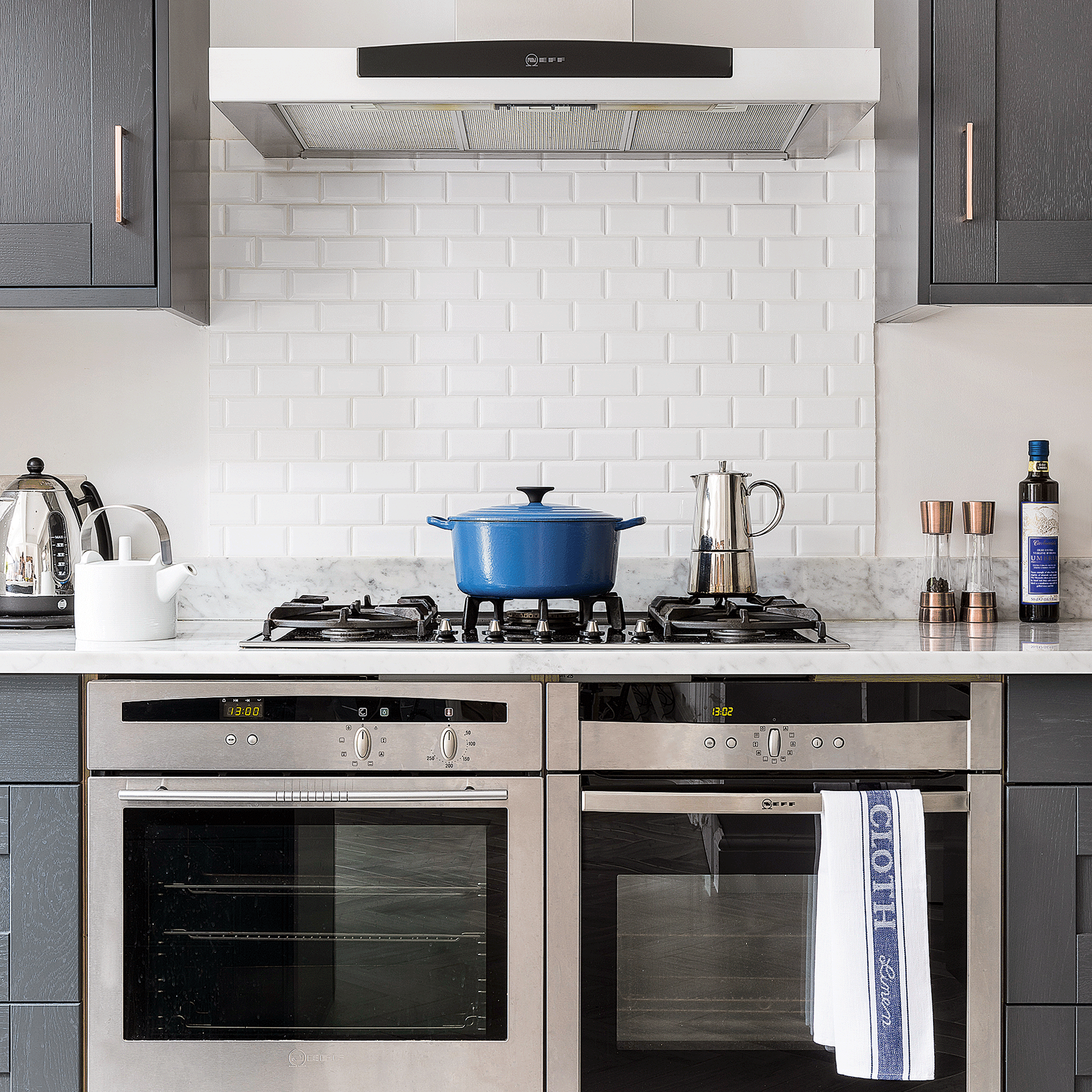
If your oven floor looks crustier than a takeaway pizza, or you open the door to a face full of smoke, you know it's high time to give it a good scrub. And there's no need to fork out for a can of caustic cleaner. Knowing how to clean an oven without chemicals won't just save you money. It will also save you from breathing in nasty fumes and can be far better for your appliance.
Many oven cleaners contain sodium hydroxide, which is great at stripping away grease and dirt but is also mildly corrosive. That's not good news for your skin, or certain materials used to build your oven. Luckily, we're here to show you how to clean your oven with some natural ingredients.
'There are parts of your oven that you shouldn't be using caustic-based cleaners anywhere near, as they can cause damage,' says Rik Hellewell, managing director of oven-cleaning company Ovenu. 'They include polished surfaces such as oven door glass, self-cleaning surfaces, and any aluminium – for example, the fan.'
Thankfully, you can get brilliant results with non-toxic household products and a bit of elbow grease. Here's how...
What you'll need
Before you start, collect together all the cleaning materials you'll want to hand. We asked cleaning experts what they use to tackle the job:
- A bucket or washing-up bowl
- A bottle of good-quality washing up liquid.
- Dry rags
- Scouring pads
- Microfibre cloths for polishing
- White vinegar or a vinegar-based spray
- Suitable metal polish, eg. stainless-steel polish
'Good old-fashioned soap and water is best for oven cleans. Make your cleaning solution by filling a bucket with warm water and a couple of squirts of washing-up liquid,' says Housekeep's Liam Dickerson. 'You'll also want to fill your sink with hot water and washing-up liquid.'
Sara San Angelo, professional housekeeper and founder of Confessions of a Cleaning Lady, agrees. 'Dish soap is a degreaser and grease spills are very prevalent in the oven,' she says. 'There is really no need to use oven cleaner. It is a very harsh chemical and very toxic. I wouldn't want to cook my food in something cleaned with a product that can take the chrome off a car bumper!'
Rik Hellewell recommends Fairy Original, £3, Ocado. 'Fairy liquid is the best stuff that you can use to clean an oven yourself,' he tells us. 'A cheap washing-up liquid won't do a lot of good, but Fairy is a very, very good degreaser. And if it's safe enough to use on the dishes you eat off, it's safe enough for your oven.'
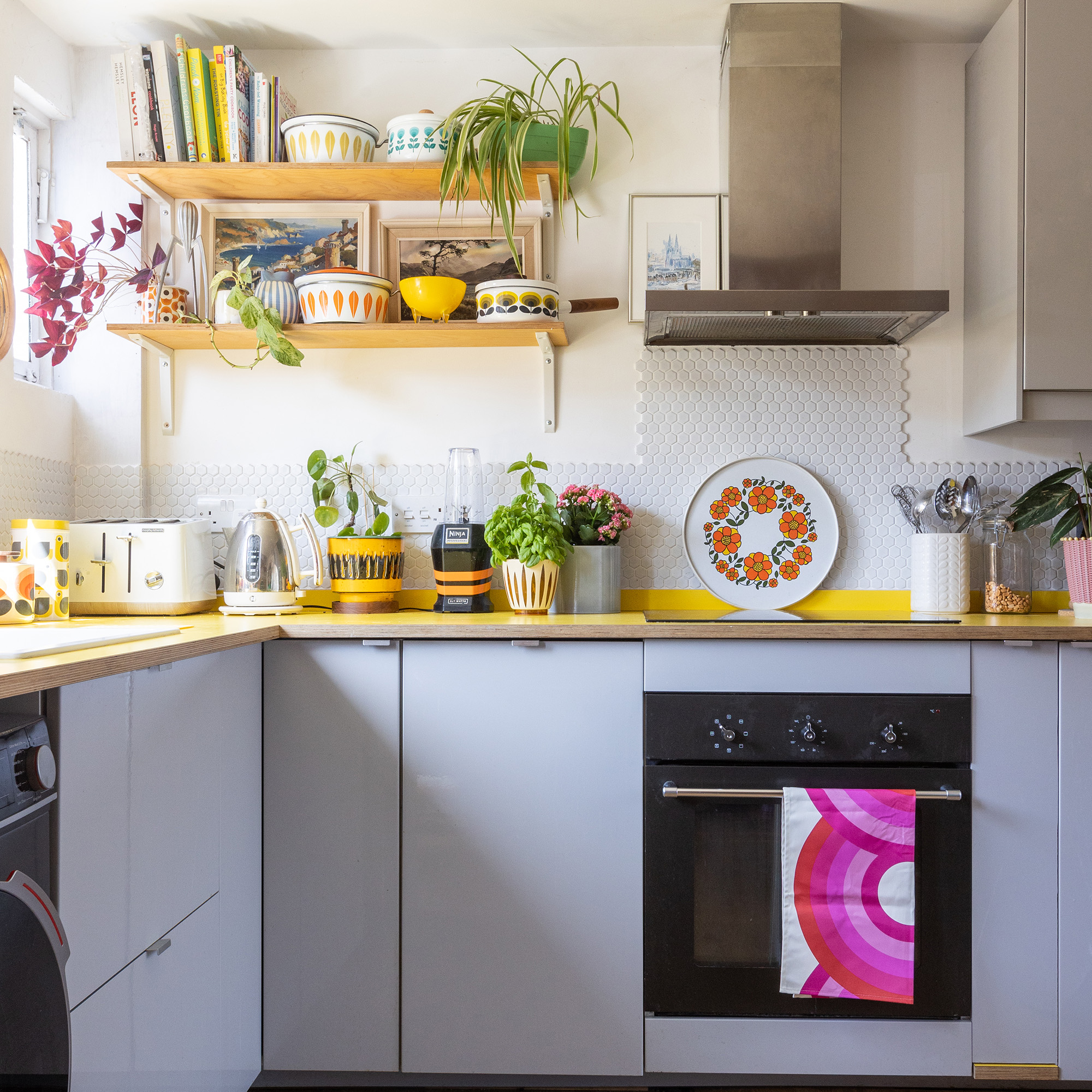
Step-by-step
Now that you're armed to the teeth with everything you need to get that oven sparkling, it's time to get stuck in. To make sure you don't make the job harder (or undo any of your scrubbing and polishing), it's best to stick to this order of work...
1. Read the instruction manual
Before grabbing a sponge, you must take a good look at the manufacturer's guidelines.
It's crucial to check the manual to make sure you're not going to damage any part of your oven by cleaning them. This could also void the warranty if your oven is still under guarantee. You'll also find out whether or not it's possible to take off your oven door(s), remove the door glass, or pull off the control knobs, which will make them easier to clean.
You may even discover that your oven has a pyrolytic cleaning function, which will clean the cavities for you. How? By heating up the oven to around 400 degrees C, which turns any grease or burnt-on food to ash.
2. Protect your floor
Cleaning your oven can generate a bit of a mess, particularly if you've left the grime to set in. That's why we advise you cover the floor below with dust sheets or newspaper. This will catch any dirt and soapy drips as you wipe and scrub
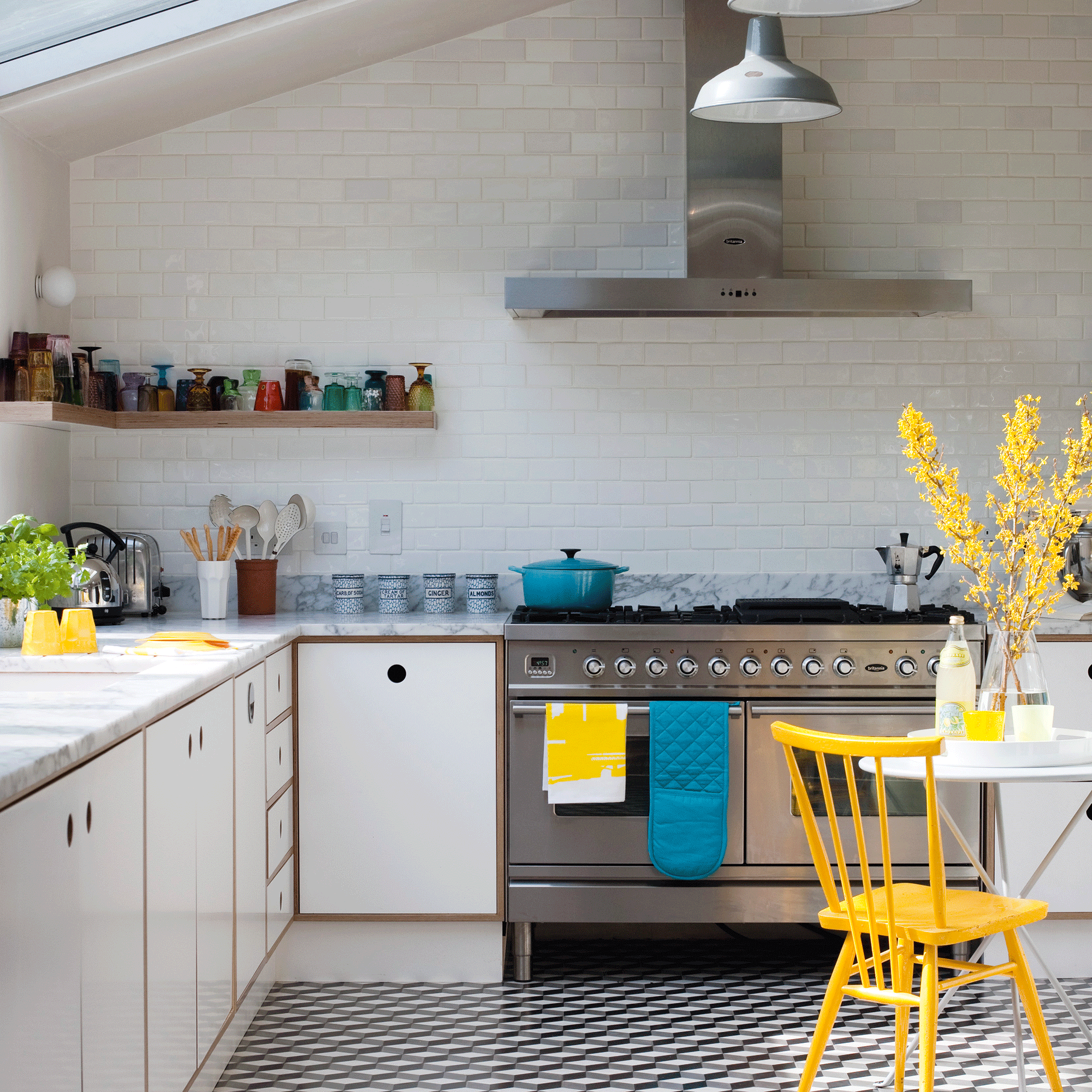
3. Remove shelves and trays
Removing your trays and shelves will leave the oven cavity empty for easier cleaning. Plus it will make it easier to clean oven racks properly.
'One of the most common and effective methods for cleaning oven racks is by soaking them in hot, soapy water,' says Lucy Baxter, group marketing manager at Bosch. 'Then, use a scrubbing brush or a sponge to wipe away any remaining dirt or residue.'
Rinse the racks with clean water and dry them thoroughly before placing them back in the oven.
Warning: 'Never leave oven racks in the oven when using the self-cleaning programme,' says Lucy.
4. Clean the oven cavity
'Wipe out the inside of the oven with a dry rag, to remove as much debris as possible,' says Liam. 'Then dip a sponge into your cleaning solution and wipe out the inside of the oven thoroughly. Leave any stubborn debris to soak in the solution for 30 minutes.'
'Once any stubborn debris has had 30 minutes to soak, use another cloth or sponge and water only, to rinse the cleaning solution from your oven.'
'Vinegar is also another good natural oven cleaner, though it may damage specialist linings, so check your instruction manual first,' says Sara San Angelo. If you're good to go, Sara recommends you: 'mix one part vinegar with one part water in a spray bottle, soak the inside of the oven, let sit for 15 to 20 minutes and then wipe out. For stuck or burnt-on food, soak longer and use a mildly abrasive sponge,' she says.
You can also learn how to clean an oven with a lemon as another natural acid to help tackle dirt and grime.
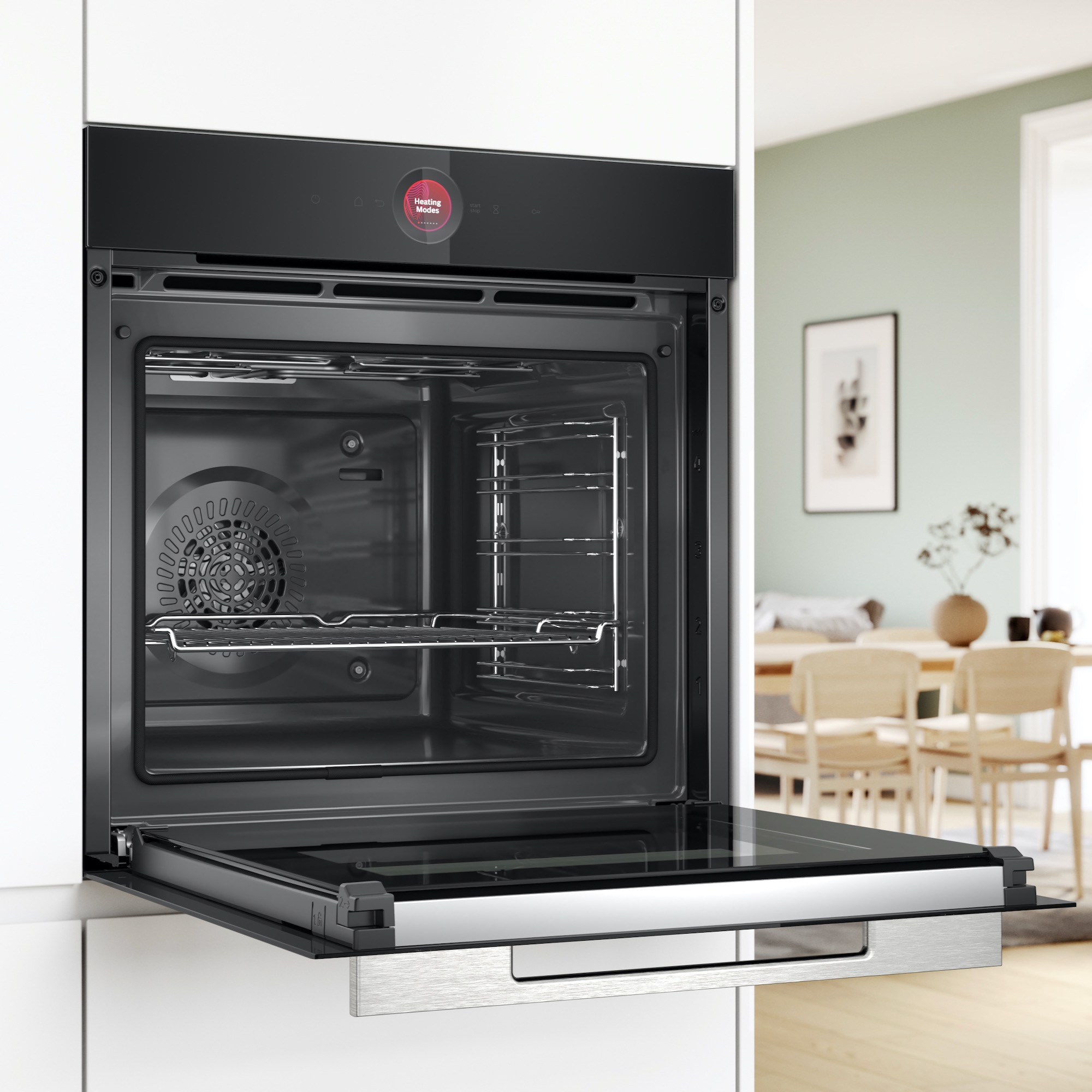
5. Clean the oven door
'To easily clean your oven glass, we recommend using a glass cleaner and a microfibre cloth,' says Lucy Baxter. 'Start by spraying the cleaner onto the oven glass. If dealing with stubborn grime, let it soak for a while before wiping it away using soapy water and a soft cloth. Avoid using abrasive sponges, cleaners, or scouring pads, as they may damage the finish.
'Additionally, refrain from using chlorine-based cleaners, as they can be corrosive to stainless steel.'
There are many other methods for how to clean a glass oven door without chemicals. Rik Hellewell at Ovenu has one method that we've tried and tested. It works, and only uses natural household products you'll probably have in your cupboard.
- Mix 65g baking soda with water until it forms a wet paste
- Spread the paste onto your oven glass, and leave it for 15-20 minutes
- Dampen a microfibre cloth with hot soapy water and wipe off the paste
- Lightly spray your oven door with white vinegar – any leftover paste will foam when it comes into contact with the vinegar
- Repeat if necessary
- Buff up the glass with a clean, slightly damp cloth
- Dry your oven door with a tea towel
However, Rik does warn against trying out the dishwasher tablet hack 'We've all seen the oven cleaning hack where people rub the door glass with a dishwasher tablet, but please don't. It will cause scratches.'
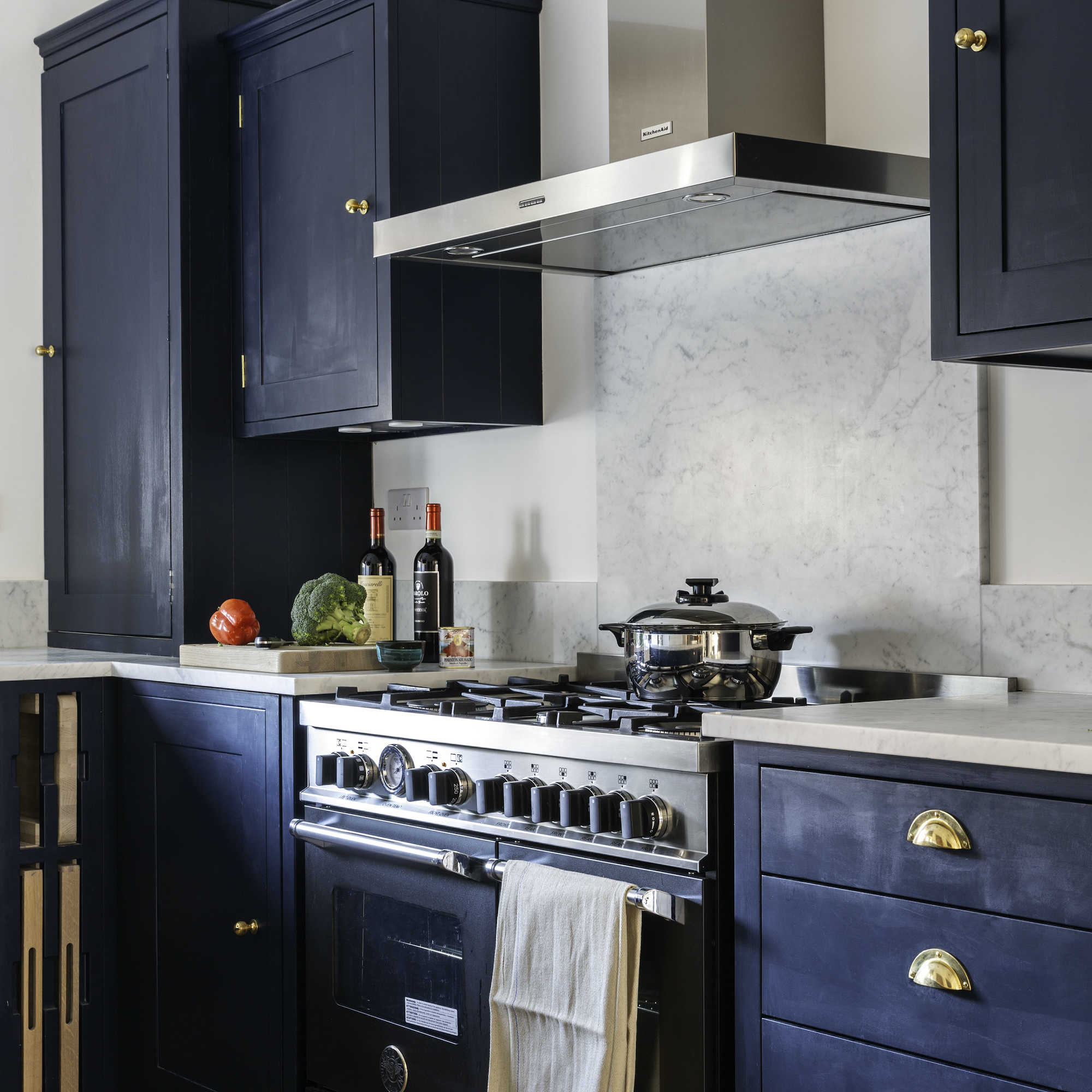
How long will it take to clean an oven?
It will obviously depend on how dirty your oven is, but on average, expect to spend around 60 minutes. 'It will take around an hour to clean your oven, from start to finish,' estimates Housekeep's Liam Dickerson.
And the joy of not using chemicals? You'll be able to use it straightaway afterwards.
How to clean an oven daily
All of our experts recommend a 'little and often' approach to oven cleaning, supplemented by a professional oven clean every six months to a year.
Ideally, you should wipe your oven clean every time you use it. Wait for it to fully cool before wiping it out with a damp cloth, and use dish-soap solution on any burnt on grease or grime. Remember to wipe the base of the oven, any used racks or trays and the oven door.
I can't get my oven clean – what should I do?
You may think your oven is a lost cause, but don't give up just yet. A professional cleaner might be able to sort it out – and reputable companies won't use harsh chemicals.
The cost of having an oven cleaned professionally can be less than you think, too – a single oven will set you back around £45. That's far less than the cost of replacing your appliance.







